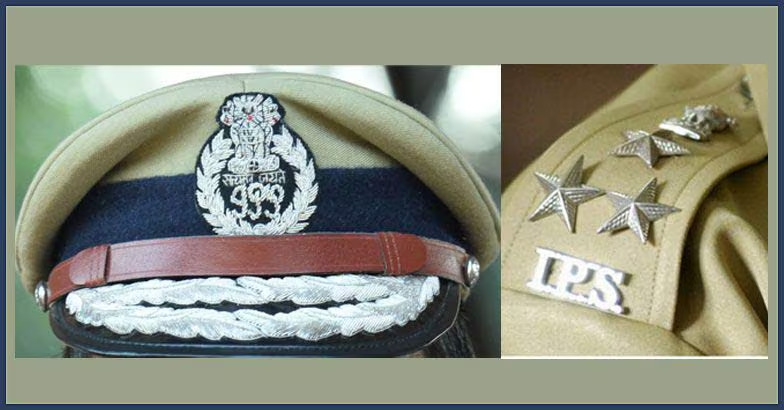IPS appointments in CAPFs continue despite Supreme Court order against the move

IPS Appointments in CAPFs Continue Despite Supreme Court Order
The appointment of IPS officers in Central Armed Police Forces (CAPFs) continues, despite a significant ruling from the Supreme Court of India. The court had directed that the deputation of IPS officers to senior roles in CAPFs, particularly in the Senior Administrative Grade (SAG) or up to the rank of Inspector General (IG), should be reduced over time, ideally within two years. However, the practice persists, raising concerns about its impact on the autonomy of CAPFs.
The Supreme Court’s Ruling on IPS Officers in CAPFs
The Supreme Court’s order followed a petition questioning the growing deputation of IPS officers in CAPFs. The petitioners argued that this practice led to the dominance of IPS officers in key leadership positions, weakening the role and autonomy of CAPF officers.
The court ruled that while IPS officers could serve in CAPFs, their numbers should be gradually reduced. The court set a timeline of two years for this reduction. It emphasized that internal promotion within CAPFs should increase, enabling officers from within the forces to take on leadership roles.
The Role of IPS Officers in CAPFs
CAPFs such as the Border Security Force (BSF), Central Reserve Police Force (CRPF), and Indo-Tibetan Border Police (ITBP) perform critical national security functions. IPS officers, with their extensive law enforcement experience, have historically been placed in leadership roles. They oversee operations, ensure internal security, and manage counterinsurgency efforts.
These senior roles have been seen as essential for effective functioning. However, the over-reliance on IPS officers has led to dissatisfaction among CAPF officers. Many argue that their growth has been stunted due to the constant influx of external leadership. The court’s ruling aimed to address this by promoting leadership from within the CAPFs.
Why IPS Appointments Continue Despite the Court’s Order
Despite the Court’s directive, IPS officers continue to be appointed to senior roles in CAPFs. Several reasons contribute to this:
1. Political and Bureaucratic Influence
The Indian government and political leadership often prefer IPS officers for senior CAPF positions. IPS officers are considered well-equipped to handle complex security issues. They bring experience from various policing roles across the country. Moreover, political considerations often play a role in appointing IPS officers to these positions.
2. Shortage of Senior Leadership in CAPFs
The CAPFs have not always been able to develop enough senior officers to fill key leadership positions. High-pressure situations, such as counterterrorism operations and border security, demand experienced leadership. While the CAPFs have many trained officers, the process of developing senior leaders from within has been slow.
3. Resistance to Change
Reforming the leadership structure in CAPFs presents significant challenges. The current system, which relies on IPS officers, has been in place for decades. Changing this dynamic requires a complete overhaul of the promotion system, which is difficult and meets resistance from various quarters.
4. Perceived Lack of Internal Capability
Critics of the Court’s ruling argue that the CAPFs lack the necessary trained senior officers. They believe that officers from the CAPFs may not have the same level of administrative experience as IPS officers, making it difficult to fill senior roles. As a result, there is reluctance to remove IPS officers from these positions without a clear plan to address this gap.
5. Fear of Operational Disruption
Many believe that reducing the number of IPS officers in senior positions could disrupt the smooth functioning of CAPFs. They worry that the lack of experienced leadership could affect the operational efficiency of these forces, especially in crucial security situations.
The Impact on CAPFs and Their Autonomy
The continued reliance on IPS officers in CAPFs has raised concerns about the autonomy of these forces. CAPF officers argue that those with direct experience in the forces should be given leadership roles. This would ensure better decision-making and internal cohesion.
Additionally, this reliance on IPS officers often leads to friction between internal officers and those on deputation. Differences in leadership styles and operational approaches can create tension, affecting the efficiency of the forces. The Supreme Court’s ruling sought to address these issues by advocating for more internal promotions.
The Way Forward: Strengthening Leadership Within CAPFs
To reduce dependency on IPS officers, the CAPFs need to invest in developing internal leadership. This includes training and grooming officers for senior positions. By providing better career progression opportunities, the government can ensure that CAPF officers are ready to take on leadership roles when the time comes.
The central government can also help by creating a more structured promotion process within CAPFs. Leadership development programs should be implemented to prepare officers for higher responsibilities. This would allow the forces to build a more capable and self-reliant leadership.
Conclusion: A Delicate Balance
The issue of IPS appointments in CAPFs is not easily resolved. While the Supreme Court has set clear guidelines, several challenges hinder the implementation of this directive. Political influence, the shortage of senior leadership, and concerns about operational disruption all contribute to the persistence of IPS appointments.
However, the Court’s ruling provides an opportunity to reform the system. By focusing on internal promotions and leadership development, the CAPFs can become more self-reliant. Over time, this will ensure that officers from within the forces take on leadership roles, better equipped to address the unique challenges of the CAPFs. The process of reform will take time, but it is essential for the long-term health and autonomy of the CAPFs.






